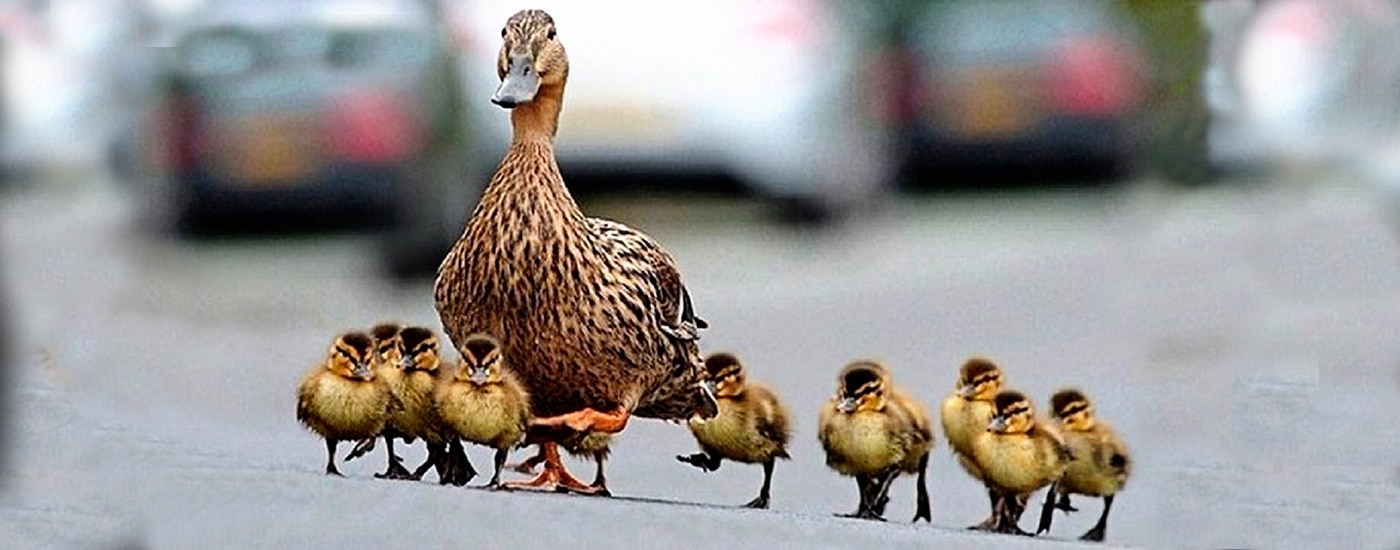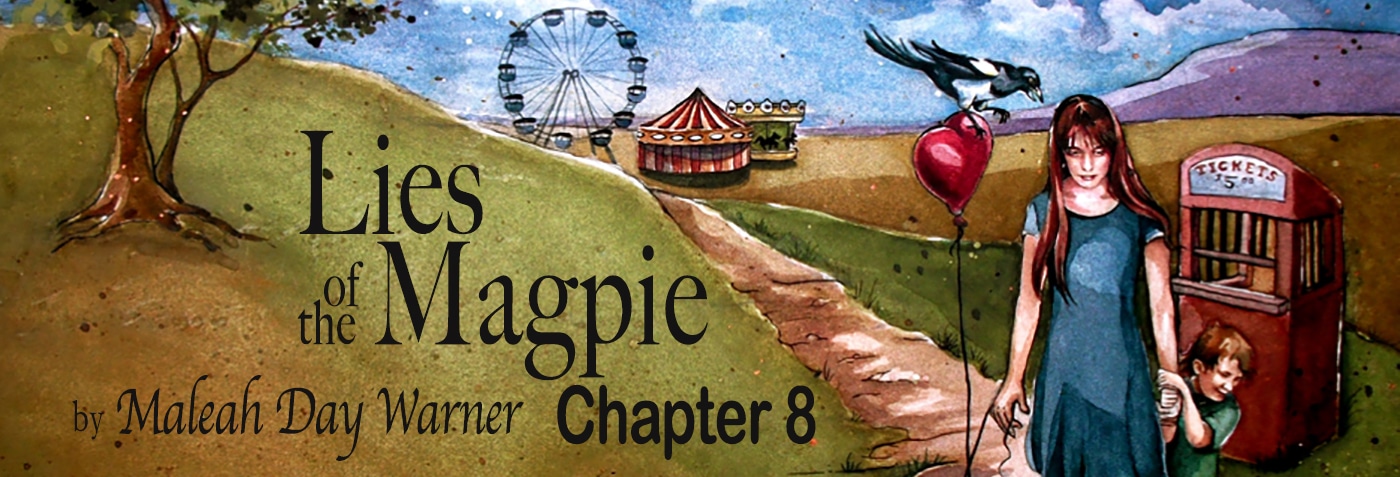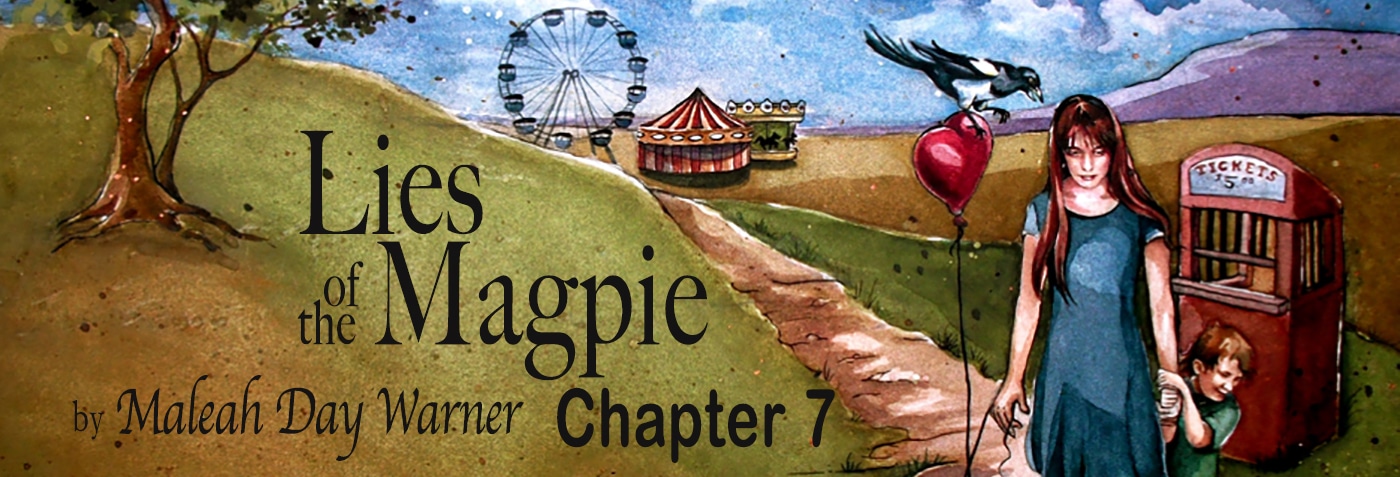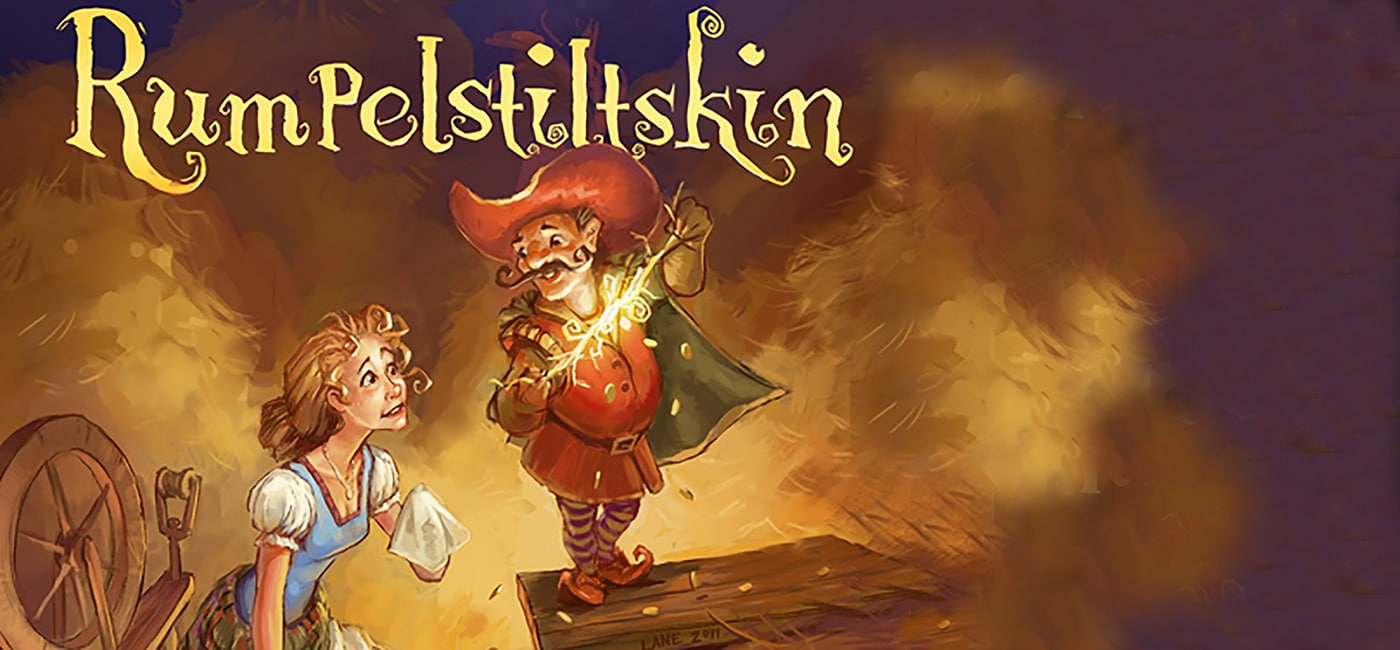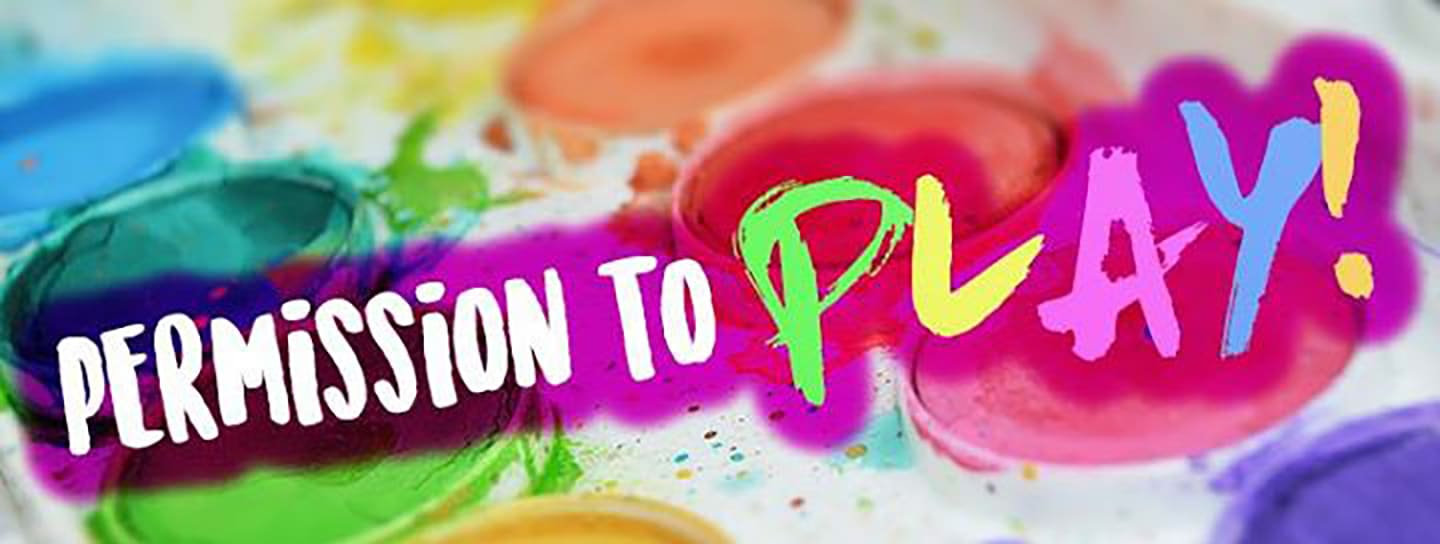Podcast: Play in new window | Download
Subscribe: Apple Podcasts | Google Podcasts | Spotify | Email | RSS | More
Podcast: Play in new window | Download
Subscribe: Apple Podcasts | Google Podcasts | Spotify | Email | RSS | More
Ep. 95 Maleah shares 3 simple tools to help clear the mental clutter in order to be less Mind Full and more Mindful. Listen to learn how to feel better now by emptying your mental trash.
Get your FREE Lies of the Magpie Audiobook by signing up for a free 30 day trial of Audible Premium Plus. You keep Lies of the Magpie even if you cancel your Audible membership.
Use this link:
https://www.audible.com/pd/B08NXZ9YWD/?source_code=AUDFPWS0223189MWT-BK-ACX0-223956&ref=acx_bty_BK_ACX0_223956_rh_us
Podcast: Play in new window | Download
Subscribe: Apple Podcasts | Google Podcasts | Spotify | Email | RSS | More
Ep. 91 Have you ever found yourself in a No-Win Pickle? This is the term I use to describe a situation where no matter what you do, no matter how hard you try, despite your good intentions you cannot win. I found myself in a No-Win Pickle after my 4th baby was born. Today I’m sharing that story along with 3 tools for managing this Failure Paradox.
A more official-sounding term for the No-Win Pickle is The Failure Paradox. My 4th son was born in the early morning hours on the day of my oldest son’s kindergarten graduation. But that wasn’t a problem. I slept a few hours, got up and showered and put on makeup and shoes ready to go. Danny’s school was a few blocks from the hospital and I figured the kind nurses wouldn’t mind keeping an eye on baby Jack while I dashed out for an hour to catch the graduation and return in time for Jack’s next feeding. Obviously, my postpartum mind wasn’t considering that hospitals have policies about new mothers leaving (child abandonment) and returning (germ exposure). I was simply trying to multitask and fit everything onto my calendar.
When the nurse raised her eyebrows at me, I realized that I would be missing Danny’s big event. And he only graduates from kindergarten once in his whole life! Because of taking care of one child, I was neglecting the other. I should have timed Danny’s birth better. I felt like a total failure as a mother.
This was my first big experience with the No-Win Pickle, which I’ve encountered dozens of times since. Basically, the No-Win Pickle is when, no matter how hard you try, you will never be able to succeed at everything. I hate that it is impossible for me to succeed at everything in mothering. I hate that I have to make impossible decisions which sometimes require choosing one child over another, or choosing myself over my children, or choosing none of us. To be a “good mother” equally for all. To never choose one over the other.
The Failure Paradox
Paradox: a statement or proposition that, despite sound (or apparently sound) reasoning from acceptable premises, leads to a conclusion that seems senseless, logically unacceptable, or self-contradictory.
The Failure Paradox: In our failure, we rise to higher levels.
Lorem ipsum dolor sit amet, consectetur adipiscing elit. Ut elit tellus, luctus nec ullamcorper mattis, pulvinar dapibus leo.
Lorem ipsum dolor sit amet, consectetur adipiscing elit. Ut elit tellus, luctus nec ullamcorper mattis, pulvinar dapibus leo.
Lorem ipsum dolor sit amet, consectetur adipiscing elit. Ut elit tellus, luctus nec ullamcorper mattis, pulvinar dapibus leo.
Podcast: Play in new window | Download
Subscribe: Apple Podcasts | Google Podcasts | Spotify | Email | RSS | More
The purpose of today’s Power Principle is to help us UNDERSTAND that chaos is part of organization, so that we can be more comfortable with periods of CHAOS and so that you can manage and springboard from those moments of chaos more skillfully.
I saw a YouTube video of a mama duck trying to stop her babies from falling down a storm drain. She worked feverishly to gather her scattered brood and nudge them to hop out of the gutter onto the step above. By the time she got the last duckling up the step, the other ducks were again scattered and she started the process over. Mrs. Duck, I can relate! I just get my kids settled into a school routine, then it’s summer break. I just get the last moving box unpacked and we move again. This cycle from chaos to order back to chaos could drive one crazy, UNTIL you understand that this cycle is an essential part of progress.
I want to assure you that when you find yourself in periods of chaos, you’re not doing anything wrong. (As long as it’s progressive chaos. There is a difference between progressive chaos and non-progressive chaos.)
“In the beginning . . . ” the Book of Genesis illustrates this pattern of chaos to order and back again. God took unorganized matter and created the earth. His six days of toil had barely ended when Eve ate the fruit and shifted the perfectly ordered life in the Garden into chaos. No sooner do Adam and Eve figure out how to labor for their livelihood and establish a good system when Cain slays Abel and their life is thrown into chaos again.
The flood. The enslaved children of Israel, I mean the only place on Earth that really stayed organized was the city of Enoch and God didn’t want that place to get messed up, so he picked it up and put it on the top shelf so the other earth kids wouldn’t break it.
Do you get the point? From the beginning of time, we have this pattern of chaos to order to chaos to order. We are designed to bring things from order to chaos, not just once, but over and over and over again.
The important point is that this cycle isn’t meant to be repetitive, but progressive.
Without periods of chaos, our lives would be stagnant. Chaos is what jumpstarts our learning and growth.
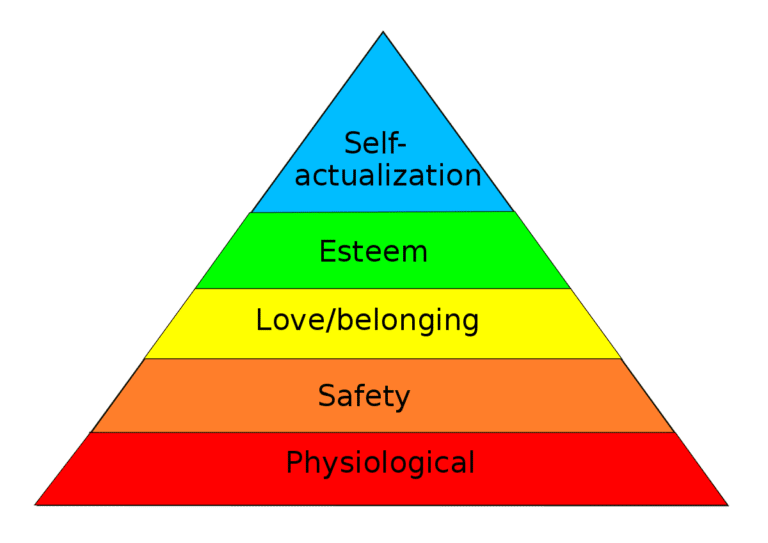
As we move through Maslow’s Hierarchy of Human Needs, we don’t stay indefinitely at the top of the pyramid. We don’t sit for eternity at Self-actualization. We go back to the beginning and start again, not repeating ourselves, but improving ourselves. On our next journey up Maslow’s pyramid, we upgrade each level. We improve the quality of our food, shelter, environment. We increase our sense of safety. We build deeper connective relationships. We deepen our sense of self identity and we further pursue our passions and purpose. Then will will go back to food and start all over again.
If you feel that you’re stuck in life, that you are running the hamster wheel but not moving forward, try going back to the basics. What is one way you can better fulfill your physiological needs? Can you upgrade your food and nutrition? Perhaps eat more raw vegetables, reduce sugar intake, quit smoking, take vitamins. Maybe you could get more sleep or clean out your closet and donate those old clothes that don’t fit. Something as simple as organizing the silverware drawer in your kitchen can energize you and jumpstart your progress up Maslow’s pyramid.
Now that you understand how periods of chaos are desirable and essential for our learning and growth, you will be better able to manage the chaos and used it as a springboard to move forward in life.
Good luck gathering your ducklings!
Podcast: Play in new window | Download
Subscribe: Apple Podcasts | Google Podcasts | Spotify | Email | RSS | More
Last night when I packed my suitcase, I opened my linen closet to find my bag of travel size items which I keep in a plastic storage bin on the bottom shelf. A wave of shame made me tremble and I retrieved the bag, closed the lid and stuffed the container back in the closet as fast as possible. I rarely think about the closet incident, but every now and then something will trigger the memory and I’m washed with humiliation. Was that really me? Did I really lock my children in their bedrooms and hide in the bottom of a closet?
Aaron and I have grown closer over the past four years, but he doesn’t know about the closet. I don’t want to freak him out. Nor have I ever told him about driving away from home in the middle of the night planning to change my identity and start a new life in Vegas.
When Kate was about 18 months old, I heard Marie Osmond give an interview talking about her experience with postpartum depression. “One night I got in the car and started to drive,” she said. “I didn’t know where I was going or what I was going to do. All I knew was that I was unfit to be a mother and that everyone—my kids, my husband, even the Osmond family would be better off without me.”
I took in every word. I’d always felt a tiny connection to Marie Osmond. We’re both Mormon and we both have a lot of brothers. And at about the same time, we both got in our cars and drove away from our babies. She traveling north on the Pacific Coast Highway. Me traveling northwest towards towards Las Vegas.
That was the first time I’d ever heard the term “postpartum depression.”
At the end of the interview the audience applauded. She was hailed as courageous for sharing her story, for talking about a taboo subject. She’d had postpartum depression and audiences applauded her for it.
I don’t know if I had postpartum depression.
But I do know, that no one applauded.
Nobody even knew.
I was no Marie Osmond. All the attention, the demands of notoriety were a burden for her. My burden was that nobody noticed me.
Nothing I did was admirable or worthy of attention.
I was invisible.
(continued on podcast)
Click HERE to listen to the rest of Chapter 8
Click HERE to listen to Chapter 7
Click HERE for all Chapters to date.
Podcast: Play in new window | Download
Subscribe: Apple Podcasts | Google Podcasts | Spotify | Email | RSS | More
When I think back about the year after Kate’s birth, my memories come with the wonder of Dr. Jeckyl and the taint of Mr. Hyde. I was genuinely happy; I wasn’t faking happy. I wasn’t “happy on the surface and sad underneath.” I was happy to the marrow of my bones happy. I experienced joy I didn’t know possible. I had never before known how having children in my life could be so magical.
Danny thrilled me. He was smart, inquisitive, playful, and interactive. He learned quickly, could recognize alphabet letters, learned new sounds daily. He loved dogs and begged to watch Disney’s 101 Dalmatians on VHS every day. We dressed him as a spotted Dalmatian for Halloween.
Kate was the most beautiful baby, strawberry-shaped lips and rose petal cheeks. She was so pink and petite that no one ever mistook her for a boy. She was tiny and strong. She could lift and turn her head a few days after birth and she learned to roll, scoot, and crawl quickly. When she discovered her laugh, it came out hearty and full from deep in the belly, which made her, and the rest of us, laugh harder. Every day she smiled and laughed and flapped her arms the moment Aaron came in the door from work, knowing he would play with and tickle her.
In November, when Kate was six weeks old, nearly all of our family came from Utah for her baby blessing. (A baby blessing is the Mormon version of a Christening, but without the baptism and Godparents.) Even my brother Kevin made the ten-hour drive, which was miraculous because his health seemed to be getting more fragile.
Kevin was eight years older than me, two years older than Annice. He had turned 33 days before Kate’s birth. He had Down’s Syndrome and a hole in his heart (a common complication of Down’s Syndrome which doctors repair today, but not in 1966 when Kevin was born.). His mind was sharp, but his holey heart struggled to pump enough oxygen to his extremities. After the long drive, his fingers and toes were dark purple. When he arrived at my apartment door, he enveloped me with the largeness of his hug and an exuberant Hello!
“Con-grat-u-la-tions,” he pronounced each syllable deliberately.
“Do you want to meet your niece?” I asked.
He sat on the blue loveseat, situated his body, positioned his arms into the shape of a cradle and smiled up at me, ready to receive this marvelous package. I balanced Kate in his arms steadying her head on his crooked elbow.
“She is beee-au . . . bee-au . . . bee-au-ti-ful.” It took three tries to get his favorite word to come out the way he wanted. He leaned down and kissed her forehead.
(Continued on the Audio. Click Play Button Above)
Listen to the rest of Ch. 7. Click Here.
Listen to Ch 6 HERE
Podcast: Play in new window | Download
Subscribe: Apple Podcasts | Google Podcasts | Spotify | Email | RSS | More
Leaning in is a power principle with multiple applications. Today we’re discussing the power of leaning into discomfort in a specific area. I invite you to stay with me to the end and I have an invitation that I think you’ll accept, even if you never thought you would.
Have your ever heard the expression, “Lean into the wind?”
Growing up, my brother and I walked to and from school no matter the weather. Which meant that sometimes we would push forward through fierce storms and arrive at the school building to learn that school was cancelled because buses couldn’t get through the snow. Anyone who has walked in strong wind know that in order to stand up straight in high wind, you can’t just stand up straight, you have to lean forward. You have to lean into the wind. Leaning into the wind means pressing forward in the direction opposite the way the wind blows.
Last summer I did a pioneer handcart reenactment in Wyoming. I don’t know if it has something to do with being near the Continental Divide, but that Wyoming prairie gets a LOT of wind—like blow your tent away in the middle of the night with you in it—kind of wind. And when we were walking and pulling our handcarts, if we wanted to move forward, we had to lean into the wind.
Traditionally lean in has been used in the context of sports to mean “to shift one’s body weight forward or toward someone or something.” In water and snow sports, you can lean into a wave, the wind, a slope, or a turn. You can lean in to a pitch or a throw. You can even lean in to a catch.
The first printed use of the term “leaning into” comes from Hartley Burr Alexander’s 1906 Poetry and the Individual, where Alexander uses the phrase “leaning into the future” in reference to the power of poetry deriving from its “leaning into the future.” And Facebook COO, Sheryl Sandberg, used “lean in” as the title of her 2013 book, a call for women to embrace challenge and risk in the work place and leadership. All uses of the term “lean in” point to the act of moving forward against an opposing force.
Why would we talk about leaning into discomfort? Why would a nice person like myself, ask you to lean into discomfort?
Episode 12 The Power of Imbalance, has been the most downloaded episode to date. (If you haven’t listened, go there next.) I think because it strikes a universal instinct in all of us. We don’t like to feel out of balance or out of control or out of our comfort zone. We don’t like to feel uncomfortable. But, as Shawn my personal trainer taught me, growth happens in the zone of imbalance, in the zone of discomfort. If you never lean into discomfort, you can not grow.
In yoga there is an expression, “Breathe into the stretch.” Yoga instructors emphasize that you shouldn’t push your body to the point of pain, but you should take your body to the point of discomfort, then breathe into that discomfort. Yoga teaches that rather than resisting what feels uncomfortable to move towards it, and in this way your muscles grow. This is opposite our instinct. Our knee-jerk reaction is to move away, to back away, to shy away, or to straight out run away from any discomfort. But, someone the act of leaning into the discomfort, of breathing into it, lessens the discomfort. Keep this in mind as we move to our third point today.
Earlier I said I had an invitation that I thought you would accept, if you can stay with me to the end. I invite you (and me) to lean into our discomfort about discussing mental illness.
When you hear the term “mental illness,” pause to observe your reaction. Do you feel a jolt of resistance? Maybe you really don’t want to hear about it or discuss it. Maybe you feel a strong urge to change the subject or leave the conversation. That’s okay. Whatever reaction you have is okay. I am NOT asking you to change your reaction. I am NOT judging your reaction or saying it is wrong or saying you need to have a different reaction. Not at all. I am simply inviting you to OBSERVE your reaction, your thoughts and feelings, and instead of resisting them, moving away, 0r running away, I am inviting you sit with your discomfort and see what you can learn about yourself. This is an invitation to lean into your emotions. And remember to breathe.
I am assuming that most, if not all of us, have what I would call an averse reaction to hearing the term mental illness. There might be some extremely enlightened yogis and gurus in the world who have no reaction, but most words aren’t neutral. Any word we come in contact with triggers some kind of thought in our brain, which triggers a related emotion. And most of you grew up in the same society I did, with the same social conditioning about mental illness.
And where did that conditioning come from? Movies, stories, experiences.
Did you know that the month of May is National Mental Health Awareness Month and has been since 1949. Congratulations. We are celebrating 70 years of Mental Health Awareness, and you didn’t even know it. I didn’t until this year. Now, think about our social relationship with Mental Illness 70 years ago, 40 years ago, 20 years ago, 10 years ago, (that’s when I was seeing doctors and getting confusing, conflicting, and unsatisfactory explanations about what was going on in my brain), to this year 2019. Good news. There have been a lot of positive changes in diagnosis, treatment and understanding of mental illness, largely due to development in brain science. I feel optimistic and excited that we will continue to progress forward, AS LONG AS and to the extent that we allow ourselves to LEAN INTO the discomfort of entering conversations and getting educated about Mental Illness.
What if all mental illness was simply misunderstood and misdiagnosed physical illness?
In past years, mental asylums were filled with people merely suffering from asthma, hypoglycemia, or diabetes. One of the most compelling stories to prove the negative consequences of misdiagnosing a physical disease as a mental illness is the story of Susannah Cahalan retold in the book (and Netflix Movie) Brain on Fire.
At age 21, Susannah worked as a writer for The New York Post. Out of the blue she began to experience hallucinations and hypersensitivity to annoying noises. Coworkers notice her strange behavior. Her parent take her to a doctor, who says that Susannah has probably been partying too much, working too hard and not getting enough sleep. Later, Susannah has a seizure and her parents take her to the emergency room where doctors prescribe anti-psychotic medication. While in the hospital, Susannah goes catatonic and doctors want to move her to a more permanent psychiatric unit where she will be treated for mental illness.
Dr. Souhel Najjar is asked to help investigate her case. Najjar has Susannah draw a clock. She draws it with all of the numbers (1–12) on the right side of the clock, leading Dr. Najjar to believe that the right hemisphere of her brain is swollen and inflamed. Najjar has her undergo a brain biopsy in order to take cells from her brain for diagnosis. It is found that Susannah has anti-NMDA receptor encephalitis, an autoimmune disease where swelling is caused by antibodies. Dr. Najjar describes it to her parents as her “brain is on fire.” Dr. Najjar prescribes her a treatment, which leads to a slow, but full recovery of her cognitive abilities.
Here is an example of a regular girl nearly locked away for life in a psychiatric ward to be medicated with anti-psychotics that would only make her worse because they wouldn’t treat the root issue. Thankfully, one doctor stepped in. One doctor leaned in and fought for her.
So, what if all cases of “mental illness” are really physical issues we don’t yet understand or haven’t correctly diagnosed?
A person acting strangely does not mean they are mentally ill. What is the WHY? behind the strange behavior? What is happening in the body and brain to cause the unusual behavior? I’m excited for more progress to be made in brain scan technology for these neuro-diagnostic tools to become more available. This is why I want to change the term from mental illness to brain illness in order to emphasize the physical brain issue rather than the stigma of character weakness.
In coming months, we will have increased opportunities to lean into discussions about mental health. This is why I extend the invitation to resist shying away from these important conversations and to lean into our socially-programmed discomfort. A lot of people and organizations are working to shorten the distance between current misdiagnosis and misunderstanding and future effective diagnosis and treatment. In fact Oprah Winfrey and Prince Harry have teamed up to release a docuseries on mental health. In April CNN reported that the multi-part documentary series, which will air on the Apple TV platform in 2020, was co-created and produced by the Duke of Sussex and Winfrey.
Prince Harry said, “I truly believe that good mental health—mental fitness—is the key to powerful leadership, productive communities and a purpose-driven self.”
Winfrey added, “Our hope is that it will have an impact on reducing the stigma and allowing people to know that they are not alone, allowing people to speak up about it and being able to identify it for themselves and in their friends. We want to blow the stigma out of the water.”
What do you think? Are you willing to take on today’s invitation? The invitation is simply this: when you someone mention “mental illness” or “mental health,” pause and observe your initial reaction. Notice if your instinct is to move away, to shut down, to change the channel. Notice if you instinctually want to move away because you feel uncomfortable. Then, instead of moving away, I invite you to LEAN INTO DISCOMFORT. Listen to the conversation, stay on the channel, keep engaged. Breathe. discomfort. Open your heart and mind and be willing to learn and to see a new perspective.
Podcast: Play in new window | Download
Subscribe: Apple Podcasts | Google Podcasts | Spotify | Email | RSS | More
I have an idea. A theory.
I think that one reason Depression (and resulting suicide) is a rampant problem in society is because we are calling it by the wrong name.
And I propose that we will never successfully eradicate this disease UNTIL we identify and address it by its accurate name.
My thesis for today’s podcast is three-fold.
First: That using the word “Depression” to name a disease is a misnomer.
Second: That calling “Depression” by the wrong name leads to incorrect or insufficient treatment to cure the disease.
Third: I propose that the simple solution of changing the NAME of the diagnosis from “depression” to a term that more accurately fits the physical causes of the disease will result in a decrease of resulting suicide, length of time suffered, and an increase of pro-active treatment.
Depression is an inaccurate name because:
Have you ever been depressed? Yes! Depression is a human emotion. Feeling depression doesn’t mean you have the disease that society currently calls “Depression.” Why do we have an illness named for an emotion? The name “Depression”
The term depression doesn’t go far enough. It stops at a symptom and doesn’t continue to address the root of the issue. Depression is an emotion, not a disease. Depression is a possible SYMPTOM of the illness, but it is not the illness. It’s like saying “Jody has low energy” and stopping there. When, if fact, Jody has anemia. Low energy is a symptom, not the cause. Low iron levels in the blood in the cause. The name “Depression” puts all the focus on a symptom rather than focussing on treating the cause.
I have had doctors explain to me the physical causes for “depression” such as low levels of brain neurotransmitters or malfunction in chemical absorption by the neuron synapses. So there is a physical cause. There is a malfunction in the body, in the brain specifically, yet we continue to call the disease after an emotion rather than for the physical cause. Diabetes is caused by the body not making enough insulin, but we don’t call the disease Shakiness or Exhaustion, we call is Diabetes.
The fact that depression is only one of many possible symptoms of this disease increases the confusion caused by this misnomer. Other symptoms can be insomnia, significant weight loss or weight gain, loss of appetite, muscle pain, moving slowly, difficulty concentrating. Furthermore, it is possible for a person to have this “disease currently known as depression” without experiencing the symptom of depression. I did not treat my illness currently known as Postpartum Depression because I didn’t feel depressed. I didn’t feel well. I was exhausted but couldn’t sleep. I ached everywhere and my body felt heavy as if I were made of concrete. I moved slowly. I lost a lot of weight, not in a good way. My head was always foggy. But I didn’t feel “depressed.” And failing to treat the physical causes of my disease caused my overall health to get worse until I also had auto-immune disease and chronic illness.
The inaccurate label “depression” hindered me from getting correct treatment.
Another reason that the term “Depression” is a misnomer is that it’s too broad. The feeling of depression can be a symptom for multiple diseases, like head injuries, cancer, or MS. Also we can experience depression without having a physical disease. We can experience depression while grieving a loved-one’s death or after losing a job or because it’s winter and there’s not enough sunlight. Depression is a common and variegated emotion. I can feel depressed in the morning and be happy by afternoon. So to call a real brain illness after such a kaleidoscopic EMOTION, seriously interferes with treating the disease.
The name Depression deters people from seeking treatment and taking steps to heal the disease.
The word “depression” connotes a character flaw. The term “depression” does not separate the person from the illness. Why? Because we identify with our emotions. Our emotional state is linked with our personality. We describe people by their emotions: He’s a jolly person, a happy person, an energetic person, she’s a sluggish person. She’s always “down.” We even have a nickname for this personality type: “Debbie Downer” Calling a disease after an emotional state creates a false perception that a person diagnosed with depression has a bad personality. This is viewed more as a personal weakness than a physical issue.
The equivalent assignation for a person who’s had a stroke would be to say, “He’s a mumbler, you can’t understand when he talks. Mumbling is associated more as a character trait. But we don’t say that. We say, “He had a stroke and it’s affecting his ability to speak.”
In most cases we are good at separating the results of an illness from the character of the person. But not with depression. And the social impact is that many people who have “the illness currently known as depression” don’t say anything, don’t seek treatment because the name Depression insinuates personal weakness. And they would rather be sick in secret than to be perceived as weak in public.
Rumpelstilskin had power to take the Queen’s baby unless she could call him by his true name. Calling a physical disease after one possible emotional symptom is like calling Rumpelstiltskin by the wrong name and then crying as he steals our baby.
I propose we begin by discontinuing the term “Mental Illness” and instead calling it “Brain disease” or “Brain Illness.” The brain is an organ just like the kidneys, lungs, and heart. When the lungs are sick, you can’t breathe well. When the brain is sick, you can’t think right. Thoughts and emotions are processed in the brain through electrical-chemical reactions. If the electric wires malfunction, the thoughts go dark, just like when power lines go down. If the chemical recipes aren’t right, the emotions come out bad, just like using salt instead of sugar when baking cookies. It’s science, not emotion.
So let’s call it by what it is. Let’s name it for the cause, not after one of the numerous possible symptoms. I don’t have authority or the training to come up with the best name, but I propose it be scientific, sound official, and be related to the root cause of the ailment rather than a resulting emotional symptom.
For example, the term diabetes is shortened from Diabetes Mellitus which comes from the Greek word diabetes which means to siphon – to pass through and the Latin word mellitus meaning honeyed or sweet. This is because in diabetes excess sugar is found in blood as well as the urine. Excess sugar is siphoned through or passes through the blood. This name helps us to focus on treating the cause of the illness rather than concentrating on the idea that in the United States we currently have over 100 million people who can digest their food properly.
Recently my son was experiencing lack of focus, bouts of anger or depression, head fogginess, and headaches. I dreaded hearing the diagnosis “Depression.”Rather he was diagnosed with Postconcussive Syndrome. That name empowered us. We know to let his brain rest, to cut back on learning new things like memorizing his violin music. He told his school teachers who were understanding and willing to accommodate if he needed extra time for assignments. It was much easier to tell his teachers that he had a concussion than that he had depression.
Currently, this same care and attention isn’t happening with the disease known as depression. The word Depression holds a lot of judgment and misperception. The stigma surrounding depression interferes with accurate diagnosis and treatment.
To reNAME this disease will empower us to perceive & understand in a different, more enlightened way. It will help us move out of the space of impatience. The attitude of “Snap out of it” and “This needs to be fixed NOW!” and into the place of giving people time and support to heal.
Podcast: Play in new window | Download
Subscribe: Apple Podcasts | Google Podcasts | Spotify | Email | RSS | More
Have you ever had that feeling? Something is wrong but you can’t put your finger on what it is? Something is wrong with your child. Something is going on at work. Something is bothering your spouse. It’s there, but you feel powerless to fix it until you can name what it is.
Naming is a power principle because naming the problem is the first step to solving the problem. My sister has always said, “I can handle anything as long as I know what it is.” She speaks truth. We are strong, intelligent, resourceful. It’s the unknown that gets us.
Why is naming so powerful?
Scientists have long studied the power of words on the human brain. The brain receives thousands of data impulses every second. These data impulses are processed as thought words or thought images.
What’s in a Name?
A name is simply a word—a combination of letters—assigned to a specific person or thing. In order to make its job a little easier, the brain names data and groups it together with similar data through categorization. It assigns words to data in order to know where to “file” the information. Anything the brain isn’t able to name ends up in the dark abyss of uncategorized info. The brain can’t do anything with this stuff until it’s identified.
We intuitively sense the power of names. There are examples in stories of the power that can come from naming.
Sometimes the only thing we need in order to solve a problem is to be able to name it. This is why talking things is so helpful. The process of talking is the process of putting those ambiguous bothers into words. Meeting with therapists, doctors, coaches, or church leaders is helpful because they can offer words for what is troubling us. I might know I have a head ache and a sore throat, but don’t know how to remedy it. Once I know it is caused by the Streptococcus bacteria, I know to take an antibiotic.
Naming our emotions is powerful. Most of the time we sweep our emotions under the rug without acknowledging what they are trying to tell us. Emotions are messengers. When we take time to say: This is sadness or This is frustration we are more effective at working through the emotions.
Podcast: Play in new window | Download
Subscribe: Apple Podcasts | Google Podcasts | Spotify | Email | RSS | More
A playful marriage is a powerful way to fuel and energize your life. Have you given yourself permission to have a playful marriage?
Marriage is a mindset. The most influential impact on a successful or failed relationship is what happens inside your own head. I’m not saying you can “power think” your way out of an abusive relationship. There are times when you need to leave a situation, but most often it is not our circumstances but how we think about our circumstances that influences our happiness in marriage.
Challenge your thoughts. Just because a thought flashes through your mind does not mean it is your thought or that it’s a true thought. Question those thoughts: “Who says so?” “Do I believe that?” “Do I want to believe that?” “Who does that thought benefit?” If a thought doesn’t serve you, then get rid of it and choose higher-quality thoughts. Replace sabotaging thoughts with empowering thoughts. Think to the possibilities.
The EGO tries to sabotage relationships because it likes to be miserable. The EGO loves being a victim, so the EGO is going to feed your brain full of relationship-sabotaging thoughts. On this episode I share stories of how brain lies nearly sabotaged my date night and a Seattle getaway with my husband.
Have you given yourself permission to be a fun partner? Who says life has to be serious all the time? Who says we can only talk about problems with our companions? Remember the power principle from Episode 4 about making life easier by solving problems without a fuss? Marriage is the perfect place to practice solving problems simply without making a huge ordeal.
In marriage, keep your problems small and your pleasure BIG.
Author Merrilee Boyack says that a fun-loving spouse enjoys watching other people have fun. Instead, be a fun-living spouse, the person who jumps right in to the middle of fun. Merrilee says that if you buy garbage bags as gifts or if your last date together without your kids was to attend a funeral, you might need to add some spice to flavor your dull marriage.
Marriage needs energy. Date nights and fun can fuel a marriage. As a rule, don’t spend more than 20% of your date night conversation talking about your kids, your bills, or life issues. It’s okay to having “planning dates” where you have dedicated time and space to discuss the budget, the remodel, jobs, kids, and even in-laws. But separate those conversations from your playful date nights. Gives yourselves permission to take a break from life and do something just for fun.
If you’ve gotten out of the habit of dating your spouse or have run out of ideas of things you enjoy doing together, you’re not alone. It happens to all of us. Have fun brainstorming together. Write down three things you would enjoy doing together. If you haven’t had common interests in the past, it’s okay to start now. Dream together often. Talk about wild, crazy things you would enjoy (and don’t allow your brain to sabotage the dream by throwing up all the reasons you couldn’t or shouldn’t dream that dream). Imagine your life together after children leave home, after retirement.
Be physically playful, and I’m not just talking about s-e-x. Hiking, biking, playing tennis, working out at the gym together, boating, getting a pair of matching mini trampolines . . . physical play is powerfully energizing for relationships.
Ask yourself, “Does my marriage feel like a perk or like work?” Give yourself permission to be married and to enjoy the perks of marriage, not just to endure the work of marriage. A few years ago my husband and I went to a life-changing marriage conference and I realized I could give myself permission for my marriage to be a source of energy and strength in my life. Rather than seeing my marriage as one more thing on my To Do List, I began to discover my marriage as a source of enjoyment and fun.
I started to give myself permission to be playful with my spouse, to be more lighthearted, to lower the stakes, and to not take everything so seriously. As a result, my marriage is becoming a safe place, a source of strength, support, courage, and energy.
The number one BRAIN LIE that we all share in common is that we are not enough. We aren’t worthy of love. We don’t deserve love. Subsequently, we deflect love when it’s offered, then cry and mope because we aren’t loved. My brain lies tell me that I haven’t worked hard enough to deserve a night out with my man, or that I don’t deserve a trip to Seattle with my husband. My brain lies and tries to convince me that I can’t be playful and intimate if my house, bedroom, or hair is messy.
BRAIN LIE = I can’t relax and enjoy time with my husband if I have work to do.
TRUTH = there will always be work to do. It’s okay to take time to play with my spouse.
BRAIN LIE = You haven’t done enough today to deserve your husband’s love.
TRUTH = I can receive my husband’s love any time, in any condition because he wants to give his love to me.
Merillee Boyack says that marriage is a Seesaw, the intensity is going to fluctuate up and down, but if you find your butt sitting on the ground, it’s time to kick off. You have the power to kick off the ground. You have the power to jumpstart the energy of playfulness in your marriage. Experience the Power of a PLAYFUL Marriage by challenging your brain lies, being a fun spouse, viewing marriage as a life perk, and giving yourself permission to receive love. And have a blast in your playful marriage!
Podcast: Play in new window | Download
Subscribe: Apple Podcasts | Google Podcasts | Spotify | Email | RSS | More
Anyone who knew me back when is probably laughing at the idea of me doing a podcast episode about play. That is okay! I hope you have a really good laugh on my account. Over the years I have learned the hard way that all work and no play make Maleah a real bore. I’ve also discovered play as a powerful way to energize and elevate my life.
Evolutionary biologists believe that play is an important key to survival. Species that don’t play don’t survive. Play is essential to survive, AND to thrive. Question: How I play? A documentary called The Power of Play (airing Jan 20, 2019) explores the science of play research. Research by California psychologist Stuart Brown, has shown that playing freely as a child is key to being mentally healthy as an adult.
Play is powerful because it allows for low-pressure exploration, discovery, and risk-taking.
When was the last time you played? What did you do?
Play is not the same as distraction.
Distractions are the things we do to avoid doing the things we have to do. Distractions are easy defaults like browsing social media, playing that game on the phone, mindlessly surfing the television channels. These things use time, but they don’t necessarily recharge or energize us the way that true play can.
Play is not a waste of time. Play is more than merely goofing around. Play is the way we explore new skills without the pressure of performing or being judged . Through play we tap into creativity and build social connections.
I used to believe that I had to have all my work done before I could play. I carried that belief into my work as a full-time mother. But for moms, work is never done! As a result, I never allowed myself to play and my life became cumbersome and dark. Part of my healing through Postpartum Depression and chronic illness was learning to prioritize play.
I learned to trick my brain and tell myself that I needed to get my play done before I could work. Doing this, I found that I had more energy and had time to be playful and get a lot of work done.
Another way I trick my brain is to find ways to get work done quickly so that I have time to play. It’s when I’m doing the less exciting chores of paying bills, calling the insurance company, or cleaning the kitchen that I get distracted and end up wasting time surfing the web or browsing FaceBook on things things that don’t really matter to me. Instead, if I set a time to get necessary tasks done quickly and reward myself with play, then I am actually more productive and feel more relaxed at the end of the day.
I’m guessing you could easily tell me ten things on your To-Do List today. And I’ll also guess these are “work” items. It’s hard to be motivated to get work done if you don’t know what you like to do for fun. What are 10 things you can give yourself permission to do that feel playful.
When we default to browsing social media or playing that online game, it’s usually because we haven’t decided what we’d rather do instead. Somehow along our journey to adulthood, we lost our sense of play until we no longer know how to play. Give yourself permission to discover your play. Plan to PLAY
What is the difference between work and play? For an NBA player, are basketball workouts and games work or play? Or when I write for ten hours straight, is that work or play? The bottom line is that it depends on mindset. And any task can be made easier by making it more playful. This is the old Mary Poppins’ principle: “In any job that must be done, there is an element of fun. Find the fun, and snap, the job’s a game.” The point is that we can all benefit from incorporating a more playful attitude into anything we do. Remember KISMIF from Episode 4 Permission to Make Life Easier? Keep it Simple, Make it Fun.
This episode has reminded me of so many ways that I can give myself permission to be more playful, to lower the stakes, to remove pressure and remember not to take life so seriously. Unless it’s about play, because these days I take my play very seriously.


